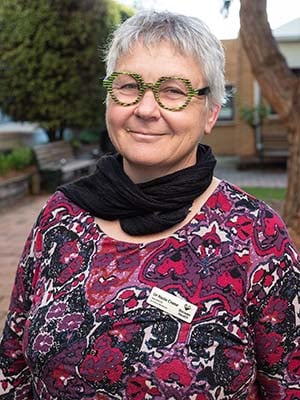, Bridge Magazine , News
Faecal Incontinence by Dr Rosemary Crone
Dr Rosemary Crone is a geriatrician who specialises in continence. She works at Barwon Health in the community continence clinic based at the McKellar site, comprising a sub-acute rehabilitation area, community clinics and residential aged care facilities (RACF). For Dr. Crone, working in geriatrics and continence are immensely rewarding because both fields work to improve quality of life.

Most of her patients are community-dwelling older people who want to live their life without embarrassment or the fear of embarrassment that often accompanies incontinence. Faecal incontinence is less common than urinary incontinence but it is often more devastwqating and embarrassing, affecting between 10 to 15% of community dwelling older people. In RACF it can occur in up to 50% of residents and can impact significantly on dignity of care for older people.
Incontinence in older people is usually due to a combination of weakness of the anal sphincter, constipation, or loose stools and losing the physical ability to walk to a toilet. In RACF, this is particularly true. Incontinence in people with dementia is related to issues with mobility, being unable to recognise the urge to go to the toilet, not knowing the location of the toilet and being unable to coordinate toileting actions. It can be a big burden for care givers and incontinence is a leading cause for people to require residential care.
Most of Dr Crone’s successes result from providing her patients advice that helps firm up loose bowel motions or constipation. This usually involves physical assessment, reviewing diet and medications that may be affecting the gut. Other health professionals can also provide this advice and assistance. In the continence clinic nurse continence specialists and physiotherapists help patients with sitting on the toilet properly and using the right muscles to empty their bowel.
They also provide dietary and laxative advice. Medications can also help establish a regular and predictable bowel routine, particularly for those with dementia or those reliant on others for physical assistance.
One of her patients had Parkinson’s disease with terrible constipation. After treatment of his Parkinson’s he is now walking 30 minutes a day, drinking more water, and opening his bowels daily using relaxation techniques taught by a continence physiotherapist and laxatives. Another patient with multiple sclerosis, who experiences severe depression, partly due to her faecal incontinence, is now on a medication regime at night to stimulate her bowels in the morning. This has improved her self-confidence. Another lady was unaware that artificial sweeteners can cause diarrhoea and after reducing these in her diet had a big improvement in her incontinence.
It is important to know that incontinence is common but it is not a normal part of ageing. Some symptoms have potentially serious causes, so it is very important to consult your doctor if you experience a sudden change in bowel habits, e.g. constipation or diarrhoea, pain, the appearance of blood in your motion, unexplained weight loss, and awareness of lumps in the stomach or back passage.
Dr Crone urges people experiencing incontinence to always consult a healthcare professional for investigation and treatment. She usually sees her patients for between three to twelve months, during which time they are equipped with whatever tools are necessary to manage their continence
independently.

